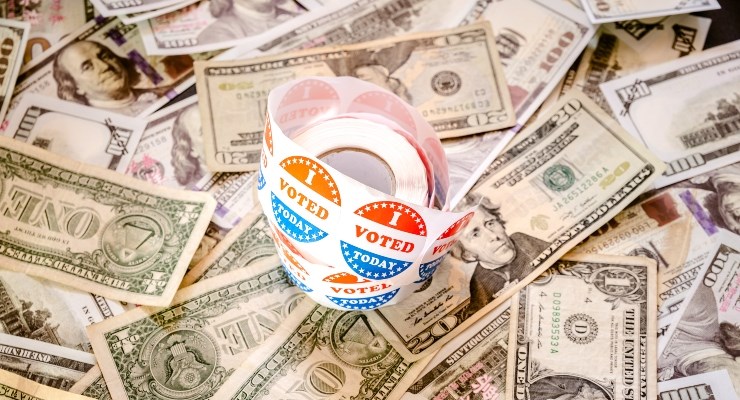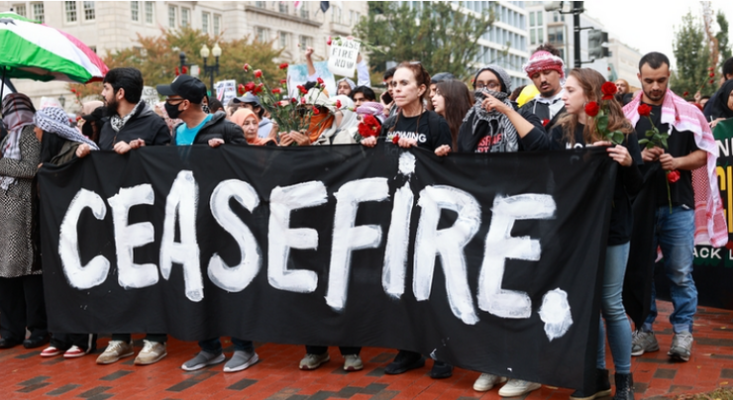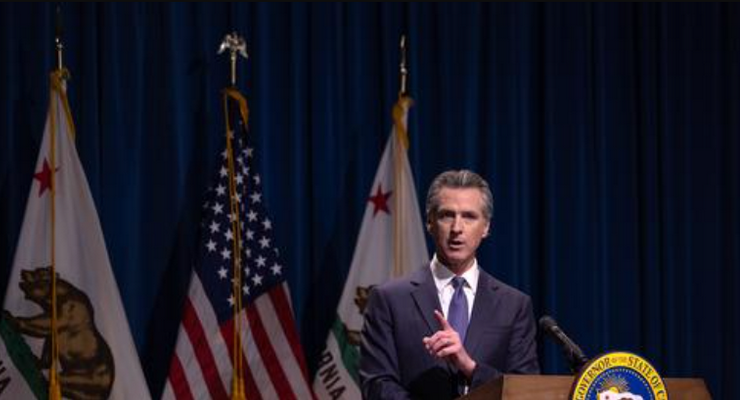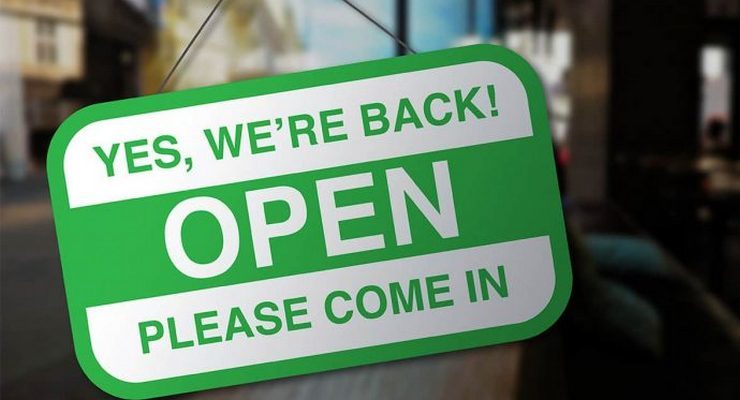
It may take California’s economy two years to recover from the COVID pandemic, according to a recent report out of UCLA, but local leaders believe Pasadena’s economy will improve faster than the region.
The report from the UCLA Anderson School of Management is more optimistic than one released by the organization in June, according to the university.
“The September release projects that the state’s economic outlook will improve substantially in the third quarter of this year, but that a full recovery will not occur before the end of 2022,” the Anderson School of Management said in a written statement.
“For example, the outlook has payroll employment reaching 16 million by the end of 2020 — still far below the roughly 17.5 million jobs as of the first quarter of 2020 — and the unemployment rate falling below 10 percent by year’s end, but still remaining close to 6 percent at the close of 2022 — compared to just under 5 percent for the U.S. as a whole,” the report states.
Pasadena’s unemployment rate dropped to 13.4 percent in August, down from a peak of 17 percent in April and May, according to the U.S. Bureau of Labor Statistics. The unemployment rate in August of 2019 was 4.1 percent.
Los Angeles County’s unemployment rate in August was recorded at 16.6 percent, down from a peak of 21 percent in May, according to state and federal labor statistics. California’s August rate was 11.6 percent, down from 16.6 percent in April and May. The federal unemployment rate in August was 8.4 percent and dipped to 7.9 percent in September.
In an essay included in the UCLA report, Senior Economist Leo Feler and Forecast Director Jerry Nickelsburg wrote that several factors appeared to contribute to the better-than-expected outcome on the national level in recent months, including “the economy having reopened more quickly than anticipated, limited restrictions in many states despite a surge in virus cases, the quick adaptation by many consumers and businesses to virtual interactions and safe physical distancing, unprecedented monetary support by the Federal Reserve, and the fiscal stimulus that was approved early in the crisis, the effects of which continue to work their way through the economy.”
At the same time, the authors pointed out that their current prediction “assumes either widespread availability and usage of an effective vaccine in early 2021 or that the pandemic’s impact on economic activity abates and is relatively mild in 2021 and 2022. It also assumes another, more limited round of fiscal stimulus before the end of the year. None of these assumptions is assured, and if they do not come to pass, our forecast … is too optimistic.”
While the economic challenges are significant, and it’s unclear what the future may hold with respect to the pandemic, Pasadena Mayor Terry Tornek said he was optimistic that the local economy would continue to gain ground.
“I think that Pasadena’s recovery will be steeper than elsewhere,” Tornek said.
As a city heavily built around travel and the hospitality industry, the impact of the pandemic has been felt hard in Pasadena, the mayor said.
“It’s not something that is going to be restored instantaneously, because people need to develop trust in the safety of travel again,” he said. “Clearly, the hospitality sector is going to take a while to recover. We still have hotels that haven’t been reopened and some that have, that are open on a very limited basis.”
But the city has other industries, as well, which haven’t been as hard-hit by the novel coronavirus.
“The good news is that Pasadena’s other strong suits, the other pillars of the local economy, are likely to be in much better shape much sooner. Pasadena’s strengths lie with its educational institutions, which will recover more quickly, and with its medical activities, which really continue to be strong and growing.”
While it’s important to plan and prepare for the long term, “ I’m more concerned about what’s going to be happening over the next couple of weeks, a couple of months, and how many that we can keep our merchants alive until they can get through the next stages of recovery,” Tornek said.
“This is going to be a real challenge going forward. There’s no question about it. For every city and for every sector of the economy,” he said.
Councilmember Victor Gordo, a candidate for mayor, said the city has a diverse economy, but has to continue to monitor the data.
“We, also as a city and as a local government, must do more to assist every sector of our local economy, everything from retail to restaurants to offices, and ensure that residents in Pasadena feel safe moving in and about our city as consumers and as residents alike,” Gordo said.
Gordo said he also believes the city is going to be a step or two ahead.
“We have to monitor all of these indicators very closely — unemployment, sales tax, transient occupancy tax, also known as the wholesale cultural tax, building permits,” Gordo said.
“If we do our part in Pasadena and as a region, we can do better than both the California and national trends,” he said. “We just have to stay on top of it because we’re a very unique region, and a very unique city and we have to capitalize on that. We have to ensure that we’re working from our strengths and not allowing academics or red tape in our local government to keep us from achieving what we know to be a very strong and diverse economy that can outperform the national trends.
“As long as we do our part as individuals and collectively, as a city, I think we’re going to outperform, economically, the region, the state and the country. We have the potential to do it. We just have got to do it together,” he said.
The large presence of the hospitality industry in L.A. County as a whole was blamed for keeping the county’s employment behind the state’s, according to California Employment Development Department Labor Market Consultant Juan Millan.
Other industries were recovering much more quickly, he said.
“Construction employment was doing rather well,” Millan said. “Another area, manufacturing employment, has also seen a good comeback.”
He added that economic recovery is not only a matter of businesses being permitted to operate, but also consumers regaining the confidence to patronize them.
And the continued risky atmosphere in the fourth quarter of 2020 is likely to continue to slow recovery, as pointed out in the UCLA forecast, Millan said.
“The concerns are growing and people are eager to get back to work, because they know that their unemployment insurance has either already expired, or is soon to expire,” Millan said. “Sadly, many workers may have no choice rather than go hungry. They may expose themselves to the dangers of being out in the workplace.”
For some businesses, especially smaller ones, it may soon be too late, said Robin Salzer, longtime proprietor of Robin’s Woodfire BBQ.
“I think if they don’t open up, you know, at least on a 25 to 50 percent basis, you’re not going to be talking about recovery, you’re going to be talking about closing down permanently and restaurants liquidating and small businesses liquidating,” he said.
“It’s not about recovery at that point. It’s about survival … The longer you’re shut down the longer it will take to recover,” Salzer said.
“Look what’s happening with Vroman’s. Vroman’s bookstore has been there 126 years. [It’s] an institution, a legend,” he said. “And they’re teetering on going out of business.”
If the business community is given the chance, “I think we can bounce back a lot faster than [two years],” Salzer said. “If you give an entrepreneur the opportunity to succeed, they will succeed.”
Pasadena realtor and landlord Adam Bray-Ali said from his perspective, the two-year recovery predicted by UCLA researchers is “not out of the question.”
“We have a lot of really serious job losses that are beginning to be announced,” he said. “And with the news in the last few days about the airline industry companies, as well as Disney, proposing and then completing large layoffs, I do think it’s going to ripple through our economy and take some time for us to recover.”
Part of the process will involve “recalibrating” the manner in which the local economy operates, he said.
From so-called “ghost kitchens” to working from home, “We’re seeing an acceleration of some trends that were already in existence,” according to Bray-Ali.
“But at the same time, there is a real struggle, and I think that it does take time for people to adjust and recalibrate,” he said.












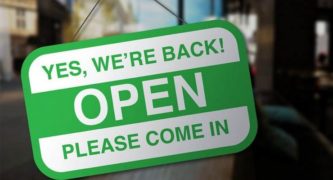

 0 comments
0 comments
